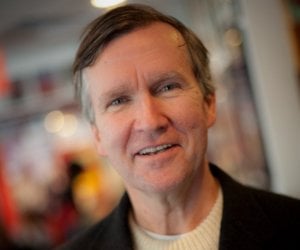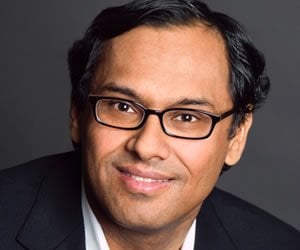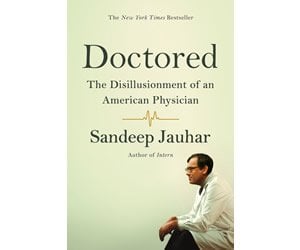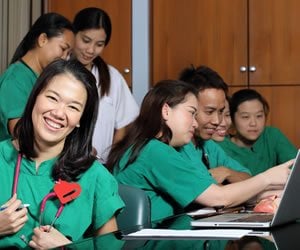
On Being a Medical Student
Republished with permission from here. Earlier in the summer, I was speaking with a friend ... Read more
Brent Schnipke
Updated June 26, 2022 by Brent Schnipke

Republished with permission from here. Earlier in the summer, I was speaking with a friend ... Read more
Brent Schnipke
Updated June 26, 2022 by Brent Schnipke

Central to the skillset of every physician is the differential diagnosis; this is the process ... Read more
Brent Schnipke
Updated June 26, 2022 by Brent Schnipke

Central to the skillset of every physician is the differential diagnosis; this is the process ... Read more
Brent Schnipke
Updated February 28, 2019 by Brent Schnipke

Tell me about yourself – who you are, what you do, where you practice. I ... Read more
Brent Schnipke
Updated June 26, 2022 by Brent Schnipke

Central to the skillset of every physician is the differential diagnosis; this is the process by which ... Read more
Brent Schnipke
Updated June 26, 2022 by Brent Schnipke

Central to the skillset of every physician is the differential diagnosis. This is a list of ... Read more
Brent Schnipke
Updated June 26, 2022 by Brent Schnipke

The Medical College Admissions Test (MCAT) is one of the most well-known entrance exams in ... Read more
Brent Schnipke
Updated June 26, 2022 by Brent Schnipke

What made you decide to write your new book, Doctored? What were you hoping to accomplish? ... Read more
Brent Schnipke
Updated June 26, 2022 by Brent Schnipke

“It is our obligation to remove the biases that stand in the way of good ... Read more
Brent Schnipke
Updated March 16, 2019 by Brent Schnipke

Transitioning to medical school is a significant change for most students; this naturally makes it ... Read more
Brent Schnipke
Updated June 26, 2022 by Brent Schnipke

The personal statement is, for many, one of the most dreaded aspects of the medical ... Read more
Brent Schnipke
Updated June 26, 2022 by Brent Schnipke

For most students, summer break is an opportunity to do many things for which there ... Read more
Brent Schnipke
Updated August 23, 2022 by Brent Schnipke

College as a pre-medical student can be challenging; unlike many other programs, pre-medical programs are ... Read more
Brent Schnipke
Updated June 27, 2022 by Brent Schnipke

During my senior year of college, I asked my girlfriend to marry me. We had ... Read more
Brent Schnipke
Updated June 27, 2022 by Brent Schnipke

Medical students deal with a lot of scary things: frequent do-or-die exams, looming USMLE or ... Read more
Brent Schnipke
Updated July 22, 2022 by Brent Schnipke

As a first-year medical student only a few weeks into gross anatomy, I still have ... Read more
Brent Schnipke
Updated August 23, 2022 by Brent Schnipke

A look at some possible origins of the myth In light of today’s holiday, I thought ... Read more
Brent Schnipke
Updated March 19, 2019 by Brent Schnipke

It’s no secret that medical school can be draining. Although it can be draining in ... Read more
Brent Schnipke
Updated June 27, 2022 by Brent Schnipke
Current phase of the application cycle.
You are viewing information for the Interviews phase of the application timeline.